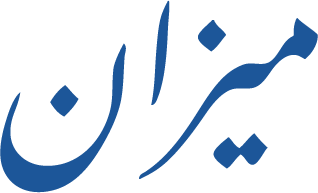Casablanca revisited
The thriving film industry in Morocco

Austin Bodetti
As much of the Arab world has descended into civil war, constitutional crises, and coups d’état, the North African Kingdom of Morocco has moved to assume its former status as a tourist destination. Westerners who used to flock to Egypt, Tunisia, Syria, and Yemen now spend their holidays in Morocco, where they can relax on pristine beaches, explore deserts and archeological ruins, visit museums, and dine on local cuisine. Few of these visitors realize, however, that Morocco’s relative stability also underpins its ever-growing relationship with the Hollywood film industry.
Film crews need absolute control over their environment to do their best work, and the turmoil overtaking much of North Africa and Western Asia in recent years has limited the options available to film companies. Consequently, Morocco, which shares much of the same topography with its less stable neighbors, has emerged as a convenient stand-in for far riskier locations.
Morocco has served as the backdrop for a number of blockbuster movies like 13 Hours: The Secret Soldiers of Benghazi, War Dogs, and Whiskey Tango Foxtrot, by assuming the identity of the films’ settings in Afghanistan, Iraq, Jordan, and Libya. Furthermore, Morocco has appeared as itself in offshoots of renowned franchises: John Wick: Chapter 3—Parabellum, Mission: Impossible—Rogue Nation, and Spectre (in the television series, Jack Ryan, it also doubled as Syria and Turkey). Morocco’s anonymity among Western audiences belies its starring role in Hollywood.
Though current events have accelerated Morocco’s rise in the film world, the North African Kingdom has been starring in Western movies for decades. Western classics such as Othello, The Man Who Knew Too Much, and Lawrence of Arabiaowe some of their most eye-catching scenes to the Moroccan landscape. In an ironic twist, Casablanca, named after Morocco’s best-known city, has no scenes shot in the North African Kingdom despite romanticizing its setting.
Ouarzazate, a once-obscure city of seventy thousand in the Moroccan countryside close to the Sahara Desert, has acted as the headquarters for many Western film crews looking for an exotic setting. From the 2000 historical period drama,Gladiator, to the 2006 horror film, The Hills Have Eyes, many Western movies have benefited from Ouarzazate’s scenic location. Even Game of Thrones, the Emmy Award-winning television series that concluded last May, opted to take advantage of the inland Moroccan city’s picturesque environs.
In the past, Ouarzazate and other Moroccan cities have faced competition. The Tunisian city of Tozeur made headlines by hosting film crews for The English Patient, Raiders of the Lost Ark, and Star Wars: Episode I—The Phantom Menace. Following a well-publicized spate of suicide attacks on Western tourists in the aftermath of the Arab Spring, however, Tunisia became a much less hospitable location for the film industry, guaranteeing Morocco’s place as the most sought-after film location in North Africa and the Middle East.
Moroccan officials consistently strive to go above and beyond in order to make their country as friendly as possible to the film industry. They have welcomed Army of One, Body of Lies, and other movies that some countries in the Middle East have deemed too offensive or sensitive to engage with. And as a welcoming gesture to foreign film crews, in 2017, the Parliament of Morocco also signaled its approval to provide a rebate for the expenses incurred during filming on its soil.
As Morocco works to attract foreign film studios, Moroccan filmmakers appear to be enjoying a renaissance all their own. “We are lucky to live in a country which is renowned for its creative freedom, an exception in the Arab world,” the distinguished Moroccan director, Narjiss Nejar, has remarked.
The Moroccan director, Maryam Touzani, submitted the film Adam as a potential nominee for the Academy Award for Best Foreign Language Film in August 2019. By bankrolling events such as the “Marrakech Film Festival” and the “Tangier National Film Awards,” Moroccan officials are expanding efforts to energize filmmakers at home and abroad alike.
If a Moroccan movie manages to land an Academy Award, Morocco will cement its place in the film industry for years to come. In any case, the North African Kingdom has already proved that its scenery and stability make it the ideal filming location for any movie set in the Middle East.
AUSTIN BODETTI recently completed a tenure as a Fulbright Scholar in Morocco, where he researched how environmentalists are drawing inspiration from Islam. In the past, he has conducted fieldwork in Bosnia, Indonesia, Iraq, Myanmar, Oman, South Sudan, and Thailand. His writing has appeared in The Daily Beast, USA Today, Vox, and Wired.His previous piece for Mizan Pop, “Surfing Lebanon,” was posted on October 1, 2019.


